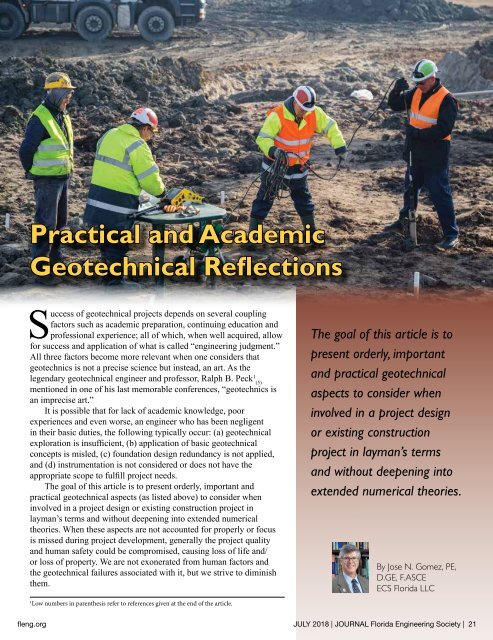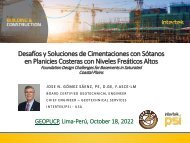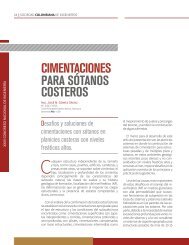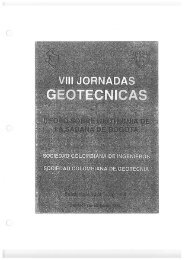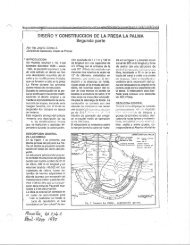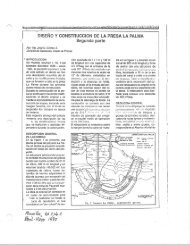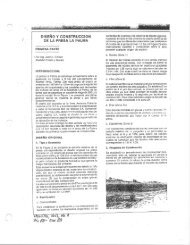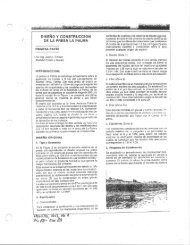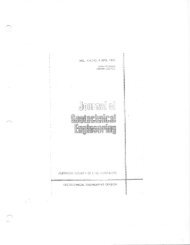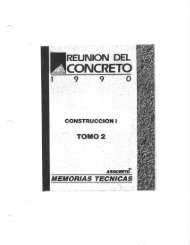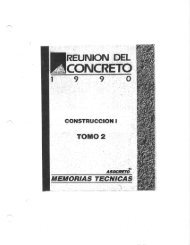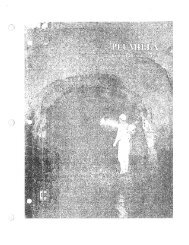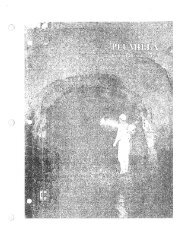Practical and Academic Geotechnical Reflections, 2018
The following article was published in the Florida Engineering Society (FES), July 2018 Journal dedicated annually to the enlightenment and education of Geotechnical Engineering. This article came to my mind as a result of teaching, mentoring, reviewing reports and supervising Geotechnical sites during four decades of my life. I say "Thank You" to my family, colleagues, co-workers and students who have supported me in my passionate pursuit of excellence in this rewarding field. Success of geotechnical projects depend on several coupling factors such as academic preparation, continuing education and professional experience. All of which, when well acquired allow for success and application of what is called “engineering judgment”. All three factors above become more relevant when one considers that geotechnics is not a precise science: rather instead, an art. As the legendary geotechnical engineer and professor, Ralph B. Peck(5) mentioned in one of his last memorable conferences, “geotechnics is an imprecise art”. It is possible that for lack of academic knowledge, poor experiences and even worse, an engineer that has been negligent in their basic duties, the following typically occur: (a) geotechnical exploration is insufficient, (b) application of basic geotechnical concepts are misled, (c) foundation design redundancy is not applied, and (d) instrumentation is not considered or does not have the appropriate scope to fulfill project needs. The goal of this article is to present orderly, important and practical geotechnical aspects (as listed above) to consider when involved in a project design or existing construction project in layman’s terms and without deepening into extended numerical theories. When these aspects are not accounted for properly or focus is missed during project development, generally the project quality and human safety could be compromised causing loss of life and/or loss of property. We are not exonerated from human factors and the geotechnical failures associated with it, but we strive to diminish them.
The following article was published in the Florida Engineering Society (FES), July 2018 Journal dedicated annually to the enlightenment and education of Geotechnical Engineering. This article came to my mind as a result of teaching, mentoring, reviewing reports and supervising Geotechnical sites during four decades of my life. I say "Thank You" to my family, colleagues, co-workers and students who have supported me in my passionate pursuit of excellence in this rewarding field.
Success of geotechnical projects depend on several coupling factors such as academic preparation, continuing education and professional experience. All of which, when well acquired allow for success and application of what is called “engineering judgment”. All three factors above become more relevant when one considers that geotechnics is not a precise science: rather instead, an art. As the legendary geotechnical engineer and professor, Ralph B. Peck(5) mentioned in one of his last memorable conferences, “geotechnics is an imprecise art”.
It is possible that for lack of academic knowledge, poor experiences and even worse, an engineer that has been negligent in their basic duties, the following typically occur: (a) geotechnical exploration is insufficient, (b) application of basic geotechnical concepts are misled, (c) foundation design redundancy is not applied, and (d) instrumentation is not considered or does not have the appropriate scope to fulfill project needs.
The goal of this article is to present orderly, important and practical geotechnical aspects (as listed above) to consider when involved in a project design or existing construction project in layman’s terms and without deepening into extended numerical theories. When these aspects are not accounted for properly or focus is missed during project development, generally the project quality and human safety could be compromised causing loss of life and/or loss of property. We are not exonerated from human factors and the geotechnical failures associated with it, but we strive to diminish them.
You also want an ePaper? Increase the reach of your titles
YUMPU automatically turns print PDFs into web optimized ePapers that Google loves.
<strong>Practical</strong> <strong>and</strong> <strong>Academic</strong><br />
<strong>Geotechnical</strong> <strong>Reflections</strong><br />
Success of geotechnical projects depends on several coupling<br />
factors such as academic preparation, continuing education <strong>and</strong><br />
professional experience; all of which, when well acquired, allow<br />
for success <strong>and</strong> application of what is called “engineering judgment.”<br />
All three factors become more relevant when one considers that<br />
geotechnics is not a precise science but instead, an art. As the<br />
legendary geotechnical engineer <strong>and</strong> professor, Ralph B. Peck 1 (5)<br />
mentioned in one of his last memorable conferences, “geotechnics is<br />
an imprecise art.”<br />
It is possible that for lack of academic knowledge, poor<br />
experiences <strong>and</strong> even worse, an engineer who has been negligent<br />
in their basic duties, the following typically occur: (a) geotechnical<br />
exploration is insufficient, (b) application of basic geotechnical<br />
concepts is misled, (c) foundation design redundancy is not applied,<br />
<strong>and</strong> (d) instrumentation is not considered or does not have the<br />
appropriate scope to fulfill project needs.<br />
The goal of this article is to present orderly, important <strong>and</strong><br />
practical geotechnical aspects (as listed above) to consider when<br />
involved in a project design or existing construction project in<br />
layman’s terms <strong>and</strong> without deepening into extended numerical<br />
theories. When these aspects are not accounted for properly or focus<br />
is missed during project development, generally the project quality<br />
<strong>and</strong> human safety could be compromised, causing loss of life <strong>and</strong>/<br />
or loss of property. We are not exonerated from human factors <strong>and</strong><br />
the geotechnical failures associated with it, but we strive to diminish<br />
them.<br />
The goal of this article is to<br />
present orderly, important<br />
<strong>and</strong> practical geotechnical<br />
aspects to consider when<br />
involved in a project design<br />
or existing construction<br />
project in layman’s terms<br />
<strong>and</strong> without deepening into<br />
extended numerical theories.<br />
By Jose N. Gomez, PE,<br />
D.GE, F.ASCE<br />
ECS Florida LLC<br />
1<br />
Low numbers in parenthesis refer to references given at the end of the article.<br />
fleng.org JULY <strong>2018</strong> | JOURNAL Florida Engineering Society | 21


